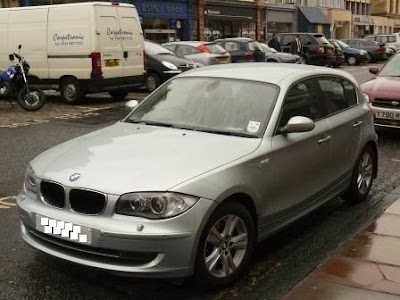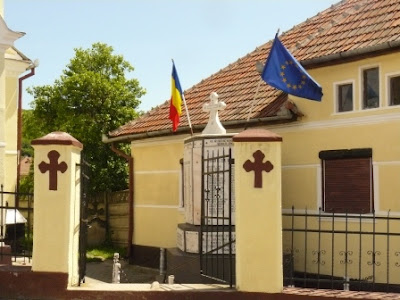De nu i-ar ‘arde’ prezenţa ei şi a Celui despre Care aminteşte, de ce atâta înverşunare împotriva ei şi încercări de a demonstra indemonstrabilul...
...că ce stupizi, limitaţi, fricoşi, intoleranţi, nefericiţi, iraţionali şi mai ales nocivi pentru semeniii lor ar fi creştinii, în vreme ce singurii care ‘profită’ din toată ‘întobitocirea’ ar fi clericii.
De nu ar spune unicul adevăr mai presus de ce pot născoci minţile noastre drept aparente adevăruri – că Hristos a înviat! – de ce ar deranja într-atâta?
Pentru că de la nivel individual până la naţiuni întregi, aproape în orice ocazie când ni se face o mustrare, când ni se spune adevărul, toţi sărim ca arşi.
Or, dacă este adevărat că Hristos a înviat, orice altceva am fi construit noi nu este decât o jalnică amăgire şi totul ar trebui să se rânduiască potrivit acestui Adevăr.
Nimeni nu este deranjat de Cruce numai aşa, din principiu, chipurile de dragul idealurilor democratice, de păstrare a unui spaţiu public*** neutru.
Iar îndelunga răbdare a Creatorului (ce a lăsat liberul arbitru fiecăruia) este luată drept ‘dovadă’ a inexistenţei ‘imaginarului Dumnezeu’.
Prăpastia dintre cine VREA să creadă (sau caută cu adevărat Adevărul şi Îl va găsi) şi cine NU VREA să creadă nu se poate umple cu argumente logice.
“Căci cuvântul Crucii, pentru cei ce pier, este nebunie; iar pentru noi, cei ce ne mântuim, este puterea lui Dumnezeu.
Căci scris este: «Pierde-voi înţelepciunea înţelepţilor şi ştiinţa celor învăţaţi voi nimici-o».
Unde este înţeleptul? Unde e cărturarul? Unde e cercetătorul acestui veac? Au n-a dovedit Dumnezeu nebună înţelepciunea lumii acesteia?
Căci de vreme ce întru înţelepciunea lui Dumnezeu lumea n-a cunoscut prin înţelepciune pe Dumnezeu, a binevoit Dumnezeu să mântuiască pe cei ce cred prin nebunia propovăduirii.
Fiindcă şi iudeii cer semne, iar elinii caută înţelepciune, [nu tot astfel şi ateii caută ‘dovezi ştiinţifice’?]
Însă noi propovăduim pe Hristos cel răstignit: pentru iudei – sminteală; pentru neamuri – nebunie.
Dar pentru cei chemaţi, şi iudei şi elini: pe Hristos, puterea lui Dumnezeu şi înţelepciunea lui Dumnezeu.
Pentru că fapta lui Dumnezeu, socotită de către oameni nebunie, este mai înţeleaptă decât înţelepciunea lor şi ceea ce se pare ca slăbiciune a lui Dumnezeu, mai puternică decât tăria oamenilor.
Căci, priviţi chemarea voastră, fraţilor, că nu mulţi sunt înţelepţi după trup, nu mulţi sunt puternici, nu mulţi sunt de bun neam;
Dumnezeu Şi-a ales pe cele de neam jos ale lumii, pe cele nebăgate în seamă, pe cele ce nu sunt, ca să nimicească pe cele ce sunt”.
*** NOTĂ: Cele 22 de imagini au fost făcute în locuri publice din Scoţia şi România, pe unde m-a purtat Dumnezeu în ultimii cinci ani. Pentru o legendă foto detaliată, a se vedea primul comentariu.
[Pentru toate postările de pe acest blog mergi la/For all the posts on this blog go to: Contents/Cuprins]





























































